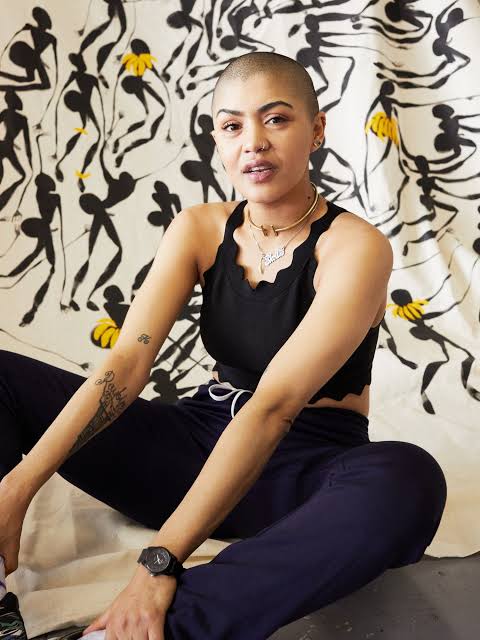Lady Skollie, born Laura Windvogel, is making waves as a fearless feminist artist challenging South Africa’s deeply ingrained ‘bro code’ through her powerful artwork. Currently captivating London with her first solo UK exhibition, “Lust Politics” at Tyburn Gallery, Lady Skollie is breaking taboos surrounding gender, sex, pleasure, and abuse through both traditional and digital media.
In a country where rape and sexual violence rates are alarmingly high, Lady Skollie’s art serves as a bold critique of South Africa’s societal issues. She addresses the systemic problems of molestation and rape, highlighting the lack of accountability for such offenses. Accountability is crucial for healing and ensuring that victims feel heard and understood.
Lady Skollie’s reputation is built on her fearless approach to addressing these issues directly. Her art often calls out public figures accused of sexual misconduct. One notable piece honors Khwezi, the woman who accused former South African President Jacob Zuma of rape. Despite the charges being dismissed, Lady Skollie’s work keeps the conversation alive. Another controversial piece focused on rapper Okmalumkoolkat received a storm of criticism, with many asking why she wouldn’t let it go. Lady Skollie challenges the expectation that women should simply overlook such issues.
“Lust Politics” is a vibrant expression of Lady Skollie’s critique of unrealistic sexual standards and the objectification of women. Her paintings feature fruit like bananas and papayas, symbolizing her discontent with how women’s bodies are viewed and treated. The women in her artworks come in various forms and colors, with some depicted as green or having body parts made of fruit. This is a tribute to Khoisan imagery, reflecting her own identity as a colored woman and addressing the self-hate prevalent within colored communities due to a lack of self-love.
The name “Skollie” itself carries significance, originating from an Afrikaans term for a rule-breaker, often associated with people of color. Lady Skollie’s racial identity and experiences growing up in a predominantly white Afrikaner school in Cape Town deeply influence her work. She recounts how she and other colored women were objectified and fetishized, an issue she tackles head-on in her art.
Lady Skollie’s work combines a powerful gender critique with her personal narrative, making it both provocative and deeply impactful. Despite knowing that her art alone may not change the world, she remains determined to challenge the status quo. Her art not only confronts the patriarchy but also empowers women. Lady Skollie is encouraged by messages from women who feel inspired by her work to confront injustices and refuse to remain silent for the sake of men’s comfort. Through her fearless artistic expression, Lady Skollie is making a powerful statement against the pervasive ‘bro code’ culture and promoting a more accountable and equitable society.











